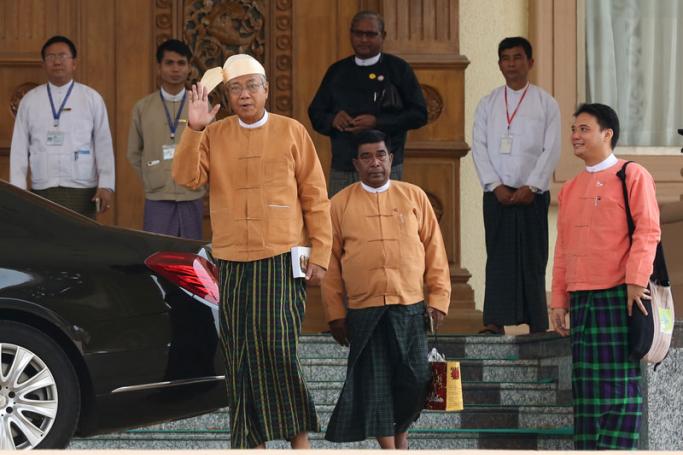Human Rights Watch has sent a letter to Myanmar President Htin Kyaw, outlining human rights challenges that Myanmar has faced and making recommendations how to address them.
“We recognize the scale of the challenges your government faces in transforming Myanmar into a rights-respecting democracy after more than a half-century of military dictatorship and repression. The legacy of misrule you have inherited includes the fundamentally flawed 2008 constitution, which was designed to limit civilian reform and ensure residual constitutional powers for the national armed forces,” says the letter which was dated 4 May.
It continues, “Human Rights Watch reiterates its call for amendments to the constitution to end the military quota of members of parliament, rescind provisions empowering the military to control three key ministries, and end reserved powers which allow the military to make decisions that should be overseen by an elected civilian government. . . The next national election should be for all parliamentary seats so that the people of Myanmar can choose a fully civilian government.”
“Myanmar faces many deep-rooted challenges, such as an unprofessional judiciary, decades of disregard for the rule of law, and poorly trained and unaccountable military and police. Up until the change in government, the authorities continued to arrest peaceful protesters and critics, which we hope will end now that your government has started the process of issuing pardons for political prisoners and dropping charges against those facing trial for political reasons,”.
HRW also pointed out that it is aware that no new government in Myanmar can immediately meet the very high expectations held both nationally and internationally for improvements in the human rights situation.
“However, we believe there are many steps that can quickly be taken to improve the lives of many in Myanmar while at the same time developing policies that will take longer to implement and bring to fruition.”
You are viewing the old site.
Please update your bookmark to https://eng.mizzima.com.
Mizzima Weekly Magazine Issue...
14 December 2023
Spring Revolution Daily News f...
13 December 2023
New UK Burma sanctions welcome...
13 December 2023
Spring Revolution Daily News f...
12 December 2023
Spring Revolution Daily News f...
11 December 2023
Spring Revolution Daily News f...
08 December 2023
Spring Revolution Daily News f...
07 December 2023
Diaspora journalists increasin...
07 December 2023
School teachers to help at polling stations in Myeik












